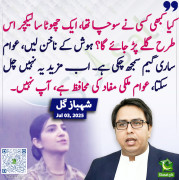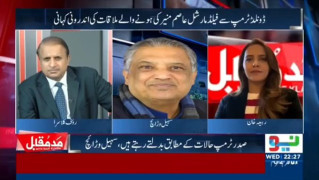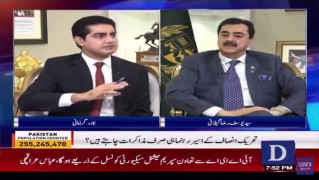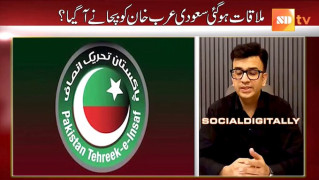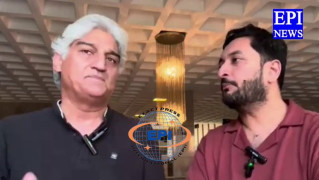Shah Nawaz: The Legacy of the Bhuttos
Precis: The Bhuttos are an ancient clan of Sindh overlords, who have served every empire into antiquity. In death, martyrs are transformed into legends, miracles attributed to them, lies told about them, wars fought in their names. Let us examine the reality, before all semblance of it passes away in the mawkish sentimentality. It is a story going back into antiquity, I beg your indulgence, for it is a long tale.
Benazir Bhutto is dead, the markets swing wildly. Platoons of pundits are rushed to the front lines of the ridiculous War on Terror as it claims yet another famous victim. Benazir Bhutto becomes a shahid martyr as did her father. Martyrs cannot be killed, but legends accrete around them, obscuring the truth.
The Bhutto clan emerges from the Mughal Empire, which comes into its own with Akhbar the Great in 1556. Today we think of India and Pakistan as Hindu and Muslim respectively, but this is a stupid simplicity. From Baghdad in the west to the Ganges river delta in the east, the Mughal Empire administered a patchwork of fiefdoms through a system of brutal and efficient tax collectors called the Zamindar. The Bhutto clan was one of many such Zamindar tax collectors, and they have been wealthy time out of mind.
The Mongol Empire, from which the word Mughal is derived, sets up shop in the city of Kabul around 1500 under Babur, a descendant of Genghis Khan. Babur wages war on the Delhi Sultans, and decisively defeats them with cavalry and cannons in 1526. With Babur's accidental death, Akhbar the Great would lead the smaller and far better organized Mughal armies east across the Indian subcontinent, making vassals of the Rajput dynasties.
The Bhutto clan is centered in Sindh, now a province in Pakistan, but once the heart of the Mughal Empire. Akhbar the Great is also born in Sindh. The Bhutto clan is rajput, a word of Hindu origin, a hereditary warrior caste which dominates both Indian and Pakistani armies to this day. Hear the word "Army" in India or Pakistan, think Rajput. For centuries, the Bhutto clan furnished effective servants to every overlord who set foot on the subcontinent.
A bit more about the Mughal, before I expand upon the Bhuttos: the Mughal were originally Persian, and Persian remains the language of the court. The Persian phrase is zaban-e-urdu, the language of the camp. The lingua franca of the Mughal armies would slowly become the Urdu language. The Mughal Empire spoke many languages, but proto-Urdu becomes the language of the street. Urdu is not consistent to this day: the closer you get to Afghanistan, the more Pashto you will hear.
Though they would in time become religiously intolerant, especially under the sadistic Aurungzeb, (who for his amusement would have elephants tossed down steep slopes to their deaths, just to hear their terrified trumpeting and screaming), the early Mughals make no attempt to forcibly convert their subjects. Akhbar the Great arranges formal debates and interfaith religious conferences. He courts the Rajput and takes a Rajput wife.
I am convinced Akhbar the Great was as fine a mind as Leonardo da Vinci. He forges armor, he tats lace. He is an archaeologist: he sets about restoring Hindu temples in a great way, and builds museums. He is an artist, an architect, a historian, a prodigious author. He makes prefabricated houses! He builds libraries. He builds seminaries, not only for his own faith, but for Hindus and Sikhs. He builds an astronomical observatory in Benares and forms a university around it which would produce significant work in theoretical mathematics. He builds roads, and is a great digger of wells. His greatest friend is a Hindu, Ram Singh, a boy he met in childhood, the story of this amazing friendship and the death of the grieving Ram Singh is recorded in the Dalpat Vila.
The Bhutto clan is Rajput, and they emerge from this odd confluence of cultures, Hindu Rajput and Persian Mughal Islam. If Rajput means Sons of Kings, the Bhutto clan becomes the Sons of Administrators.
By 1700, the era of the Muslim Mughals was largely over. Emperor Aurungzeb, he of the elephants, had been a pitiless tyrant. He taxed and waged war on the Hindus Akhbar had befriended and cherished. Where Ahkbar was Great, Aurungzeb was horrible: never has an empire died so unlamented. With the death of Aurungzeb, the world rejoiced. The Mughal Empire collapses into feuding states.
The Hindus had slowly battled their way north, their implacable hatred of the Mughal Empire made worse by new taxes and prohibitions. The Muslims are gradually forced back, trapped in the far east and far west. Hindu Maratha kings take their place. By 1900, the Muslims consider themselves an oppressed minority where once they had been rulers. The All Muslim League forms in 1909, hostile to the Hindu dominated Indian National Congress. Talk of a Muslim country begins in earnest, in 1930.
Friend of Kings
The Sardar lords of the Bhutto clan have entertained the wealthy and power with annual hunts for centuries. Sardar, from Persian sirdar, a hereditary overlord. Sardar Murtaza Bhutto builds a great estate in Larkana and names it Al Murtaza. Al-Murtaza = he who pleases God. They certainly pleased the Mughals and the British who followed. Of their enemies, more will be said shortly.
An aside: Murtaza was the name of Benazir's murdered brother. After the fall of their father, Murtaza fled to communist Afghanistan, where he waged an insurgency against the military dictatorship of Pakistan.
Sardar Murtaza Bhutto named his son Shahnawaz, meaning friend of the king in Persian, and sent him away to school in England. Shahnawaz returned to India, and entered civil service in what is now modern Gujarat, under the Nawab of Junagadh. Zulfiqar Ali Bhutto, Benazir's father, would change the spelling to Bhutto. For the sake of clarity, I will use Bhutto throughout.
Shahnawaz's fortunes improved, for Sindhi, the language of his childhood, is very similar to Saurastri. He became the Dewan, the Prime Minister of Junagadh. Dewan Shahnawaz he was now called, like his tax-collecting Zamindar ancestors, for dewan is the Persian word for tax collector.
Now grown immensely wealthy, heaven knows how, (how money does seem to adhere to some men!), Shahnawaz took a lowly Hindu dancing girl named Lakhi Bai to wife. Lakhi was forcibly converted to Islam, renamed Khursheed Begum and gave Shahnawaz two children, Zulfiqar Ali Bhutto and a daughter, Mumtaz.
Shahnawaz did become the friend of kings, and knelt before the British monarch, becoming Sir Shah Nawaz Bhutto, Companion of the Order of the Indian Empire, and Officer of the Order of the British Empire, for his help in the bloody amputation of Pakistan from India.
Now Junagadh is Hindu, and within India, but in those days it was still ruled by Muslims. In 1748, as the Mughals grew weak, Sher Khan Babi cheerfully expelled his Mughal governor and went about seizing most of Saurastri-speaking India. The Babi signed on with the Hindu Marathas of Varoda, who were glad enough to protect the Muslim Babis, for the Hindu Marathas had waged war on the Mughal Empire for centuries. The Babis would hold onto Junagadh for centuries with the help of their Hindu overlords in Varoda. The British East India Company arrived in 1818, but never trifled with the Babi rulers. They broke Saurastri-speaking India into a hundred princely states. By the time of Indian Independence in 1947, there were 565 such princely states.
The British had fouled everything up to a fare-thee-well. The British had governed India reasonably well under the British East India Company, but the Empire was a squalid thing. The British Empire did a few things reasonably well, where they stayed out of the way. Some look back in fondness to the charm of the hill stations and Kipling's Gunga Din, of sunburned adventurers in Victorian pith helmets and khaki suits sitting down to vindaloo curry served by chaiwallahs in impeccable outfits. It was complete rot. Go to Brixton if you want a good vindaloo.
Read Orwell if you want the real story of the British Empire in India, It is the tale of a rapacious drug lord: Orwell's father was a minor bureaucrat, accounting for trunks full of opium grow for the export market to the Far East. Blankly ignorant of their subject peoples, dividing them where they might have united them, the British are aware of their cultures now, for the Empire came home to roost. Now Urdu and Hindi are heard throughout London Town, and a very considerable number of these people in towns such as Paisley Scotland, in the mild landscapes of Renfrewshire plot to kill the British, yes on Albion's Isle. The Pakistanis are somewhat less than grateful for the British legacy of treachery and incompetence in their supposed liberation.
The British proved themselves the most inept of conquerors. They had learned nothing from their misadventures in North America in the 1770's. In the ancient dominions of the Mughal world, the British pitted Hindu against Muslim, making the Sikhs into their soldiery. An old historian of my acquaintance once sorted out the European colonial powers in this wise: the Spanish saw converts, the French saw people. The Belgians saw slaves. The British saw savages.
The 1930s and 1940s
The sun set on the British Empire, and it set long before the end of World War 2. Muslims and Hindus were forming up political parties. In 1940, Sir Shahnawaz Bhutto forms the Sindh Party. The British had set partition in motion, long before, when it failed to control ethnic and religious violence. They had conquered India by breaking it into smaller and smaller pieces. How could it have been otherwise? The British monarch Victoria styled herself Kaisar-i-Hind, the Caesar of India.
Bled dry after the end of World War 2, the British begin the muddled process of Partition. The East and West of India were to be given to the Muslims, though to this day there are more Muslims in India than Pakistan. Partition of India was an act of monumental and lasting stupidity, but stupidity on such a scale requires the contributions of many. The British did not do it alone. The maps were brought out, and a dozen pencils began to draw lines: the more lines were drawn, the more stupid became the Partition. Kashmir, the K in Pakistan (P for Punjab, A for Afghan K for Kashmir, S for Sindh and tan for Baluchistan) was given to India, and is still the subject of bitter fighting. ****hi had argued against Partition in the 1930s. ****hi failed: he lacked a Muslim version of himself to reach out to the Muslims with kindness.
In fairness to the Muslims, men like Jinnah had tried the political route. At the time, one fifth of India was Muslim. The British made Hindi the national language and distrusted the Muslims, especially the fierce tribes who now protect Osama bin Ladin in the desolate mountains of Pakistan's lawless south.
Each of the princely states was given the choice of alliance to Hindu India or Muslim Pakistan. Outraged and frightened, no longer protected by his Maratha overlords, the Babi Nawab flees Junagadh into Muslim territory in what would become Pakistan, loudly complaining. Another version of the story has Shahnawaz leading a palace coup overthrowing the Nawab, and declaring for Pakistan.
In the official version of the story we find Dewan Shahnawaz forcing his erstwhile master, to cede Junagadh to India. Shahnawaz Bhato returns to Larkana in Sindh, immensely wealthy, to Al Murtaza, his ancestral home.
A Contemplation of the Partition.
On August 14th, 1947, Lord Mountbatten, (himself to die at the hands of terrorists) was present in Karachi for the ceremonial transfer of power from the British to the Dominion of Pakistan. The actual transfer would occur at the stroke of midnight on the 15th, but Mountbatten had to be present in the Union of India for another ceremonial transfer of power.
What followed was the greatest single migration of peoples in the history of the world, more than fourteen million people over several months. We will never know how many millions died in the panicked multi-directional stampede. Estimates range from 200,000 to a million dead. Hindus, Sikhs, Muslims, in pitiful columns, moved across the landscape. Those not murdered outright died of hunger and disease, and arrived in their new "homelands" completely destitute. The world was caught completely unprepared. The fear and resentment lingers on to this day. By contrast, all the dead of the American Civil War, which lasted over four years, sum to between 600,000 and 700,000 dead.
The borders of Partition would see intermittent conflict flare up until both sides acquired nuclear weapons, and artillery became pointless. Today, there is bus service between Pakistan and India over roads originally built by Ahkbar the Great.
The Bhuttos After Partition
At his estate,Al Murtaza, Sir Shahnawaz Bhutto set himself up in magnificent style, and became Shah-Nawaz the Friend of Kings again. He entertains Iskander Mirza, another English-educated son of nobles, from the other end of India: Bengal. Iskander Mirza is the first boy from the Indian subcontinent to graduate from the Royal Military Academy at Sandhurst, Britain's premier institution for the creation of colonial dictators, including such distinguished graduates as Idi Amin, Muhammar Qaddafi and Ayub Khan, Pakistan's first dictator. Ayub Khan was also a frequent visitor to Al Murtaza, of whom we shall hear in due course.
Iskander Mirza, like Sir Shahnawaz Bhutto, moved seamlessly from British to Muslim rule. Mirza was a bigger fish by far, had served in the British Indian Army from 1920, spending most of his time in the west, in Waziristan, Peshawar and the Khyber Pass, rising to become Defense Minister in a crabwise fashion through the Indian Political Service to become the man who would divide India's army between India and Pakistan. As Pakistan's first Defense Secretary, Mirza creates the Pakistani Army. Ayub Khan would use that Army somewhat differently than its original intent.
The Fifties
The Dominion of Pakistan was a miserable bipartite thing, separated by 800 miles of India, speaking Bengali in the east, Urdu in the west. Unspeakably poor, filled with refugees, it was soon torn by religious riots. A new sect of Islam had arisen, the Ahmadi, who believed Mirza Ghulam Ahmad was the second coming of Christ. The Sunni and Shiites soon put a stop to that, murdering the Ahmadi and expropriating their property. In response, Pakistan declared martial law. It was a dreadful precedent. Pakistan has since spent most of its sad existence under martial law.
Those whom the gods would destroy, they answer prayers. As the Hindus had trod down the Muslims, making Hindi the national language, Jinnah forced Urdu upon the Bengali. Predictably, the Bengalis rioted, a few massacres, in steps the Pakistani military to shoot up a medical college. More martyrs, the situation went from bad to worse, and in 1956, the military put an end to the whole wretched sham, throwing out the Dominion and creating the Islamic Republic of Pakistan with Iskander Mirza as its first president.
Two years later, Field Marshal Ayub Khan, Mirza's Sandhurst classmate and another of Shahnawaz Bhutto's guests to Al Murtaza, gave Iskandar Mirza a one-way plane ticket to Britain and declared Basic Democracy. Ayub Khan's form of Basic Democracy was to ask every village headman if he had complete confidence in Ayub Khan's leadership. It should come as no surprise Ayub Khan received a 95.6 percent Yes vote.
Field Marshal President Ayub Khan made powerful friends of his own between 1958 and 1969. For these were the days of the Cold War. To the USA, no dictator was too repulsive insofar as he wasn't a Communist. Billions of dollars of American aid money consequently poured into Pakistan. Much of that money was poured into the pockets of Ayub Khan's favored friends, and the visits to Al Murtaza continued.
Ayub Khan's ears and eyes were open, and he was making few friends at home. He called for elections in 1964. To his anger and amazement, Fatima Jinnah, the sister of Pakistan's founder Ali Jinnah almost won. But as with the village headmen, it seems Ayub Khan asked the vote counters if they, too, had complete confidence in Ayub Khan's leadership, and they declared him the winner with 61% of the vote. Basic Democracy works.
Within a year of the election, there was open war with India. Ayub Khan plays a dangerous game of Footsie with the Communist Chinese, and signs an ignominious peace treaty with India in Tashkent. His new American friends are not pleased, the Pakistanis even less pleased. Basic Democracy was turning against him, and in 1969, the answer to his oft-asked question was decidedly in favor of the No answer.
Zulfiqar
Sir Shahnawaz's son by the little Hindu dancing girl was now a grown man. Bearing the mighty name of Zulfiqar, the sword of Allah which shall be swung by the returning Mahdi, Zulfiqar Ali Bhutto first arranged marriage collapses disastrously. He studies political science at the University of Southern California, then at UC Berkeley. Zulfiqar attends Oxford University and flirts with the notion of socialism in Islamic countries. He marries his second wife, a Kurd from Iran in 1951. Their daughter Benazir would be born in 1953, followed by two other children, a daughter Sanam and a son named for his grandfather Shahnawaz. Pay attention to the name Sanam Bhutto, for she will shortly appear on the stage of Pakistani politics, the last child of a dynasty.
Ayub Khan steps aside in 1969 in favor of a trusted subordinate, Yahya Khan. In this same year, Iskandar Mirza dies in London. Yahya Khan forbids the return of Mirza's body to Pakistan. The Shah of Iran takes custody of the body and gives it a huge state funeral. There was no love lost between Yahya Khan and the Shah of Iran: Yahya Khan's ancestor was the monstrously cruel Nader Shah of Iran, who came to a bad end in 1747. If I seem to indulge in ancient history, these things are current in the minds of the people we seek to understand.
Yahya Khan fulfils his promise to hold elections in 1970. In one of the worst natural disasters in history, a cyclone strikes East Pakistan, kills a half million people outright and displaces millions more. Yet elections continue, and East Pakistan under Mujibur becomes a political entity in its own right with 185 seats. Zulfiqar Ali Bhutto wins 85 seats. In yet another act of treachery, Zulfiqar Ali Bhutto and Yayha Khan collude to keep Khan in power and deny Mujibur his win. West Pakistan essentially invades East Pakistan, murdering Mujibur's supporters. In 1971, India finally has enough, and crushes Yahya Khan's armies. Thus is born Bangladesh.
Yahya Khan is blamed for the defeat, but in truth, Zulfiqar Ali Bhutto is equally guilty. Yahya Khan resigns in favor of Zulfiqar Ali Bhutto, who continues martial law. Under Zulfiqar, the Islamists are empowered, Pakistan develops nuclear weapons. Pakistan's economy is ruined by nationalizing everything, farms and industry alike. The Baluchis of the south are slaughtered, relations with India grow worse, and in every respect Pakistan goes downhill. Let no man say Zulfiqar Ali Bhutto was democratically elected. He came to power by default, and he destroys Pakistan with his insane Islamic Socialism.
When the Pashtun leader Khan Wali Khan becomes a political threat to Zulfiqar Ali Bhutto, Wali Khan's suppoerters are murdered, he is jailed, then exiled. Perhaps the only sensible politician of the era, Wali Khan had opposed the formation of Pakistan, trying to preserve a larger India. Khan's dream of a Pashtun nation should be taken seriously in our time, for it is the only sensible solution to the problems facing both Pakistan and Afghanistan. These are our problems, too, for the Taliban are Pashtun.
In 1977, things are bad enough Zulfiqar Ali Bhutto declares elections. When his PNA opponents accuse Zulfiqar's PPP of rigging the election, riots break out and General Zia ul-Haqq seizes power. General Zia again implements Basic Democracy by imprisoning everyone, PPP and PNA alike, and Zulfiqar cools his heels in prison for a few weeks.
When General Zia feels things are under control, he calls for election in October. Zulfiqar Ali Bhutto returns to the Al Murtaza estate and all Sindh turns out to cheer him on. Feeling confident, Zulfiqar goes campaigning. General Zia is not amused and puts Zulfiqar back in prison. Finally, wearying of Zulfiqar's opposition, General Zia puts Zulfiqar in prison again, and has him tried for rigging the previous election -- and the attempted murder of Ahmed Raza Kasuri.
During the disastrous war with East Pakistan, Ahmed Raza Kasuri, once a member of Zulfiqar's PPP, had revolted against Zulfiqar over his treacherous collusion with Yahya Khan. Did Zulfiqar order the murder? We'll never know. But Zulfiqar Ali Bhutto was found guilty and hanged in April of 1979. Zulfiqar Ali Bhutto was manifestly guilty of war crimes in East Pakistan against his fellow Muslims, and certainly more implicated in the murder of Wali Khan's supporters. Zulfiqar was hanged because he led Pakistan to military defeat and economic ruin, from which Pakistan has still not recovered.
When Zia ul-Haqq dies in an airplane crash in 1988, along with the American ambassador to Pakistan, there is a surfeit of suspects. Did the KGB shoot the plane down because Pakistan had backed Charlie Wilson's War, driving them from Afghanistan? Did the Pashtuns or Baluchis shoot it down because of Zia ul-Haqq's continued oppression? Lots of Pakistanis think the CIA shot the plane down, but this is manifestly stupid, Zia ul-Haqq was Our *******. Perhaps a few of Zulfiqar's buddies shot it down.
Benazir
Upon Zia's death, Benazir Bhutto walks out of her jail cell and into the Prime Minister's office, to much rejoicing. She continued to work with the Americans, backing the Taliban in Afghanistan. She promised much and delivered little. Over the years between 1988 and 2007, Pakistan's politics have been a slugfest between equally useless and corrupt elements. Nawaz Sharif was Zia ul-Haqq's boy, a tool of the Islamic old guard. Benazir Bhutto was the mild public face of cheap talk and the private face of endemic corruption. Her father's crude and idiotic Islamic Socialism had destroyed Pakistan and she did little to undo the damage he did. She did, however, create the myth of Shahid Martyr for her father, and built the ostentatious mausoleum in which she is now buried
Could Benazir Bhutto have solved Pakistan's problems? I suppose that's an open ended question. She did not solve them while she was in power before. Nor in fairness did her enemies let her. She is buried alongside her Zamindar grandfather, her father and her brother, in their enormous mausoleum, in ancient Larkana. Shah Nawaz, friends of kings.
http://blai.newsvine.com/_news/2007/12/30/1193585-shah-nawaz-the-legacy-of-the-bhuttos
Last edited by a moderator:



